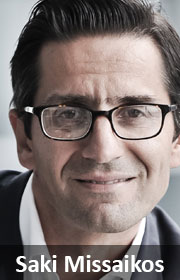 Imagine the scenario where accessibility, affordability and quality — the three key pillars for a communications environment in South Africa — deliver the economic and social benefits that governments, researchers, industry bodies, regulators and others agree are possible.
Imagine the scenario where accessibility, affordability and quality — the three key pillars for a communications environment in South Africa — deliver the economic and social benefits that governments, researchers, industry bodies, regulators and others agree are possible.
It can be a reality, provided there is a will. But it would require a national ICT policy that is pragmatic — one that is simple yet comprehensive enough to meet the challenges of an industry that is in a constant state of flux. It needs to be a policy that supports an open and competitive environment while stimulating investment.
Accessibility, affordability and quality are, however, interdependent and inextricably linked. The provision of digital services is redundant if they are affordable but not accessible. And if they are affordable but not accessible, they’re equally of no use.
Any permutation, except delivering all three pillars together, will result in an ineffective and inefficient communications environment that is unable to deliver the promised, and desperately needed, socioeconomic benefits.
Unless as an industry, working with government, regulators and legislators, we agree a policy designed to deliver on a single objective that is all encompassing, and takes account of the entire ICT ecosystem — from infrastructure through to digital services — and which has end users at its heart, we are missing a trick.
The fact is that we use ICT in every single socioeconomic undertaking today. Technology will continue to provide significant end-user and business benefits.
Do we need regulation? Yes, we do. But we need regulation designed with a minimum of interference while still being efficient, effective and transparent. We know that with excess interference, or indeed “managed interference”, the wheels of progress turn in exaggerated slow motion — or don’t turn at all.
Technology is improving every day, and as an industry we are constantly changing, evolving and adapting to that. This is made possible through investment — in infrastructure and services, and in research and development.
The investments made in ICT infrastructure since the first mobile operators were launched in the mid-1990s runs into the tens or possible even hundreds of billions of rand. Any policy that does not support and incentivise investment is going to stifle South Africa’s economy. But infrastructure investments must deliver accessible, affordable and quality services. This does not mean one company bankrolling the industry — we need a competitive market. But we also need a fair market.
There is overwhelming evidence that a competitive market and open-access policies deliver the greatest economic and social benefits. The International Telecommunication Union has said that open-access enables “lowest price and highest speeds”.
That’s a good thing in anyone’s books. Any policy must support and stimulate an environment that will deliver an open and competitive environment. At the same time, the environment must be conducive to continued investment from private enterprise.

A competitive market, coupled with continued infrastructure investment, doesn’t always guarantee better services. An environment that delivers opportunities for innovation must be built in South Africa, in the process stimulating jobs and advancing government’s vision of an “inclusive and prosperous” society.
I can’t end this piece without some mention of spectrum.
Global best practice appears to be about managing spectrum in a more flexible way, with a greater emphasis on market forces, and away from methods that are prescriptive and that often impede access.
We don’t want regulations that slow the adoption and benefits of new technologies. Spectrum needs to be made available to meet evolving needs. It was former Vodacom CEO Alan Knott-Craig who said, when asked about spectrum at Internet Solutions’ Internetix conference in 2009, that operators should “use it or lose it”.
Like most countries, we need regulations that are smart. How smart those regulations are is up to the industry, the regulator and government.
We cannot let the country down in crafting a new ICT policy. Let’s think about our commercial interests, while at the same time ensuring we deliver ICT that is accessible, affordable and of high quality for everyone.
- Saki Missaikos is MD of Internet Solutions

